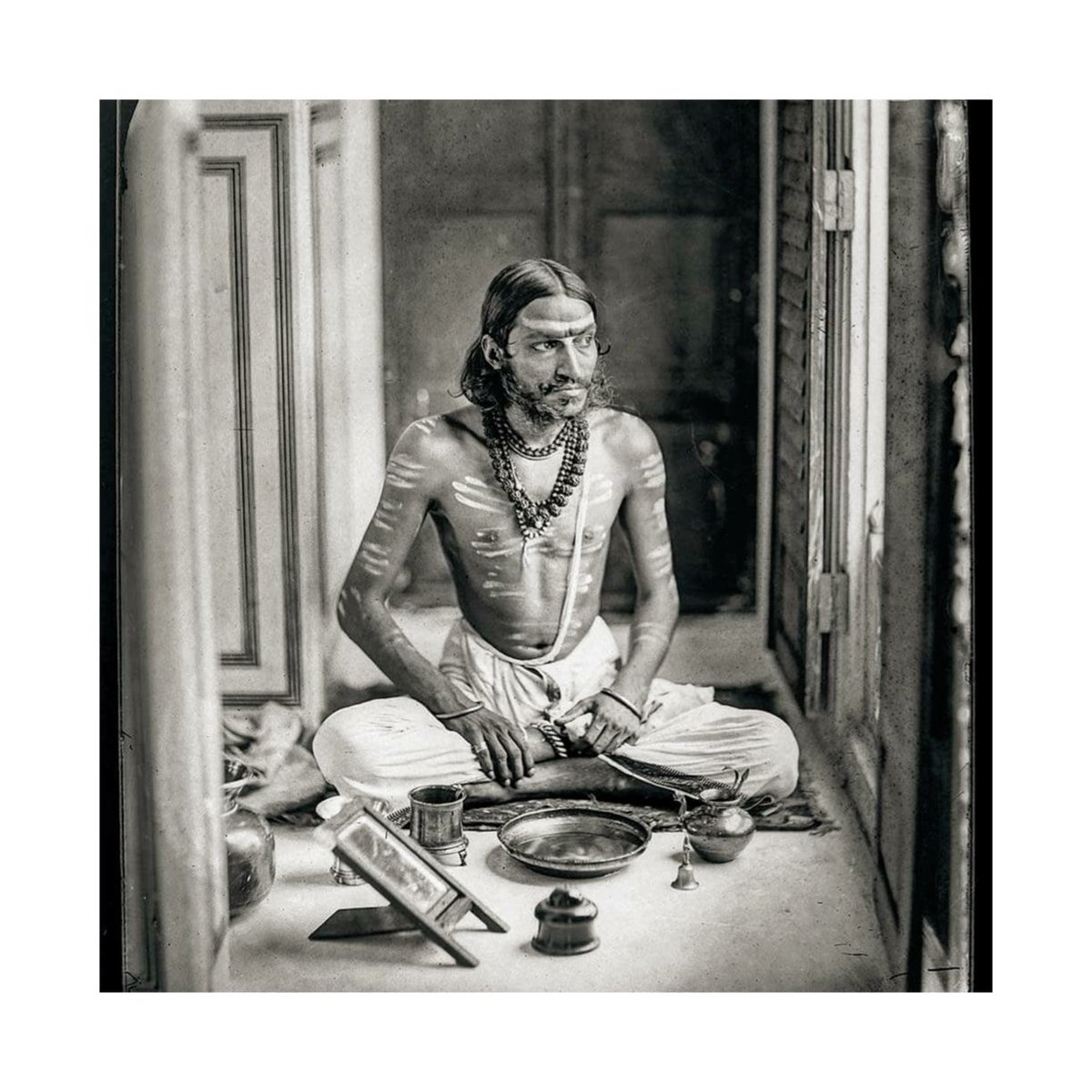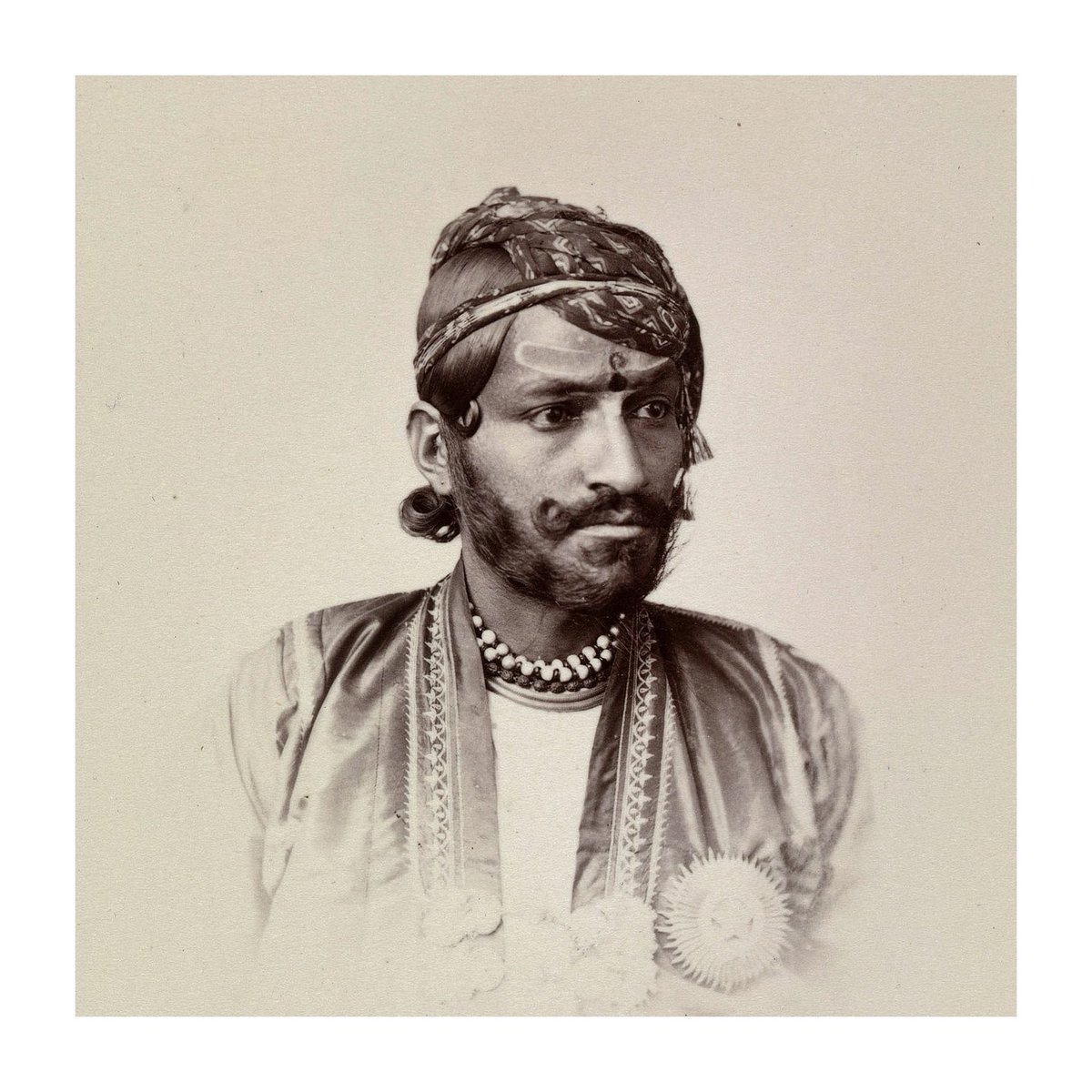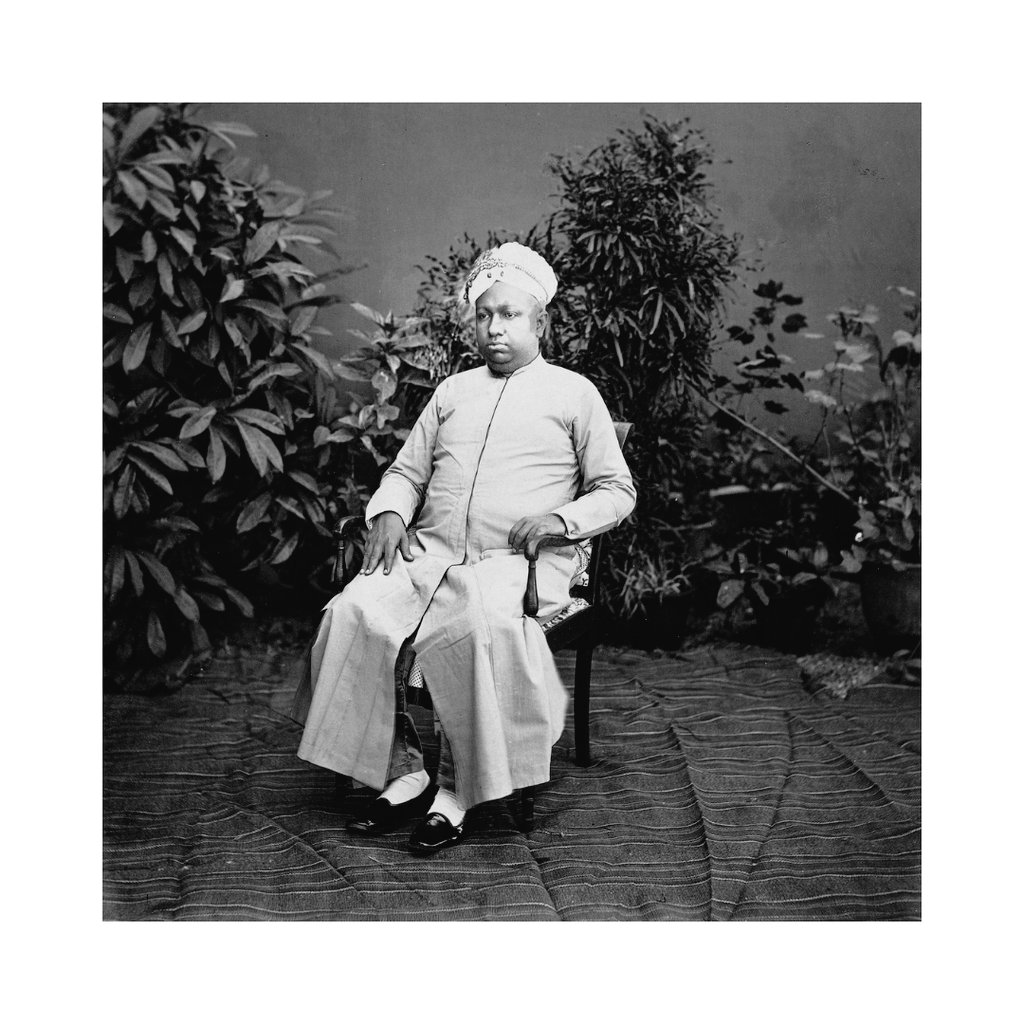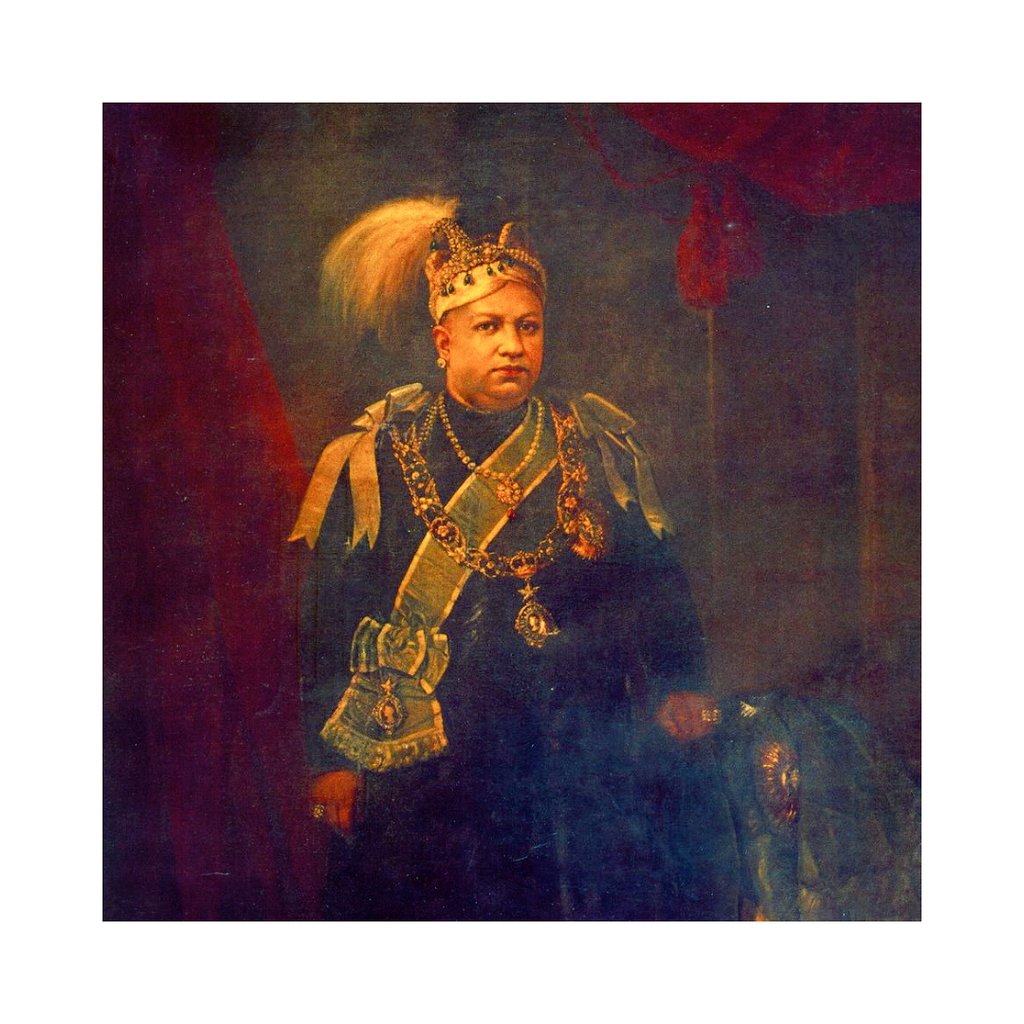
Writing in the 1870s, Tukoji Rao Holkar II of Indore declared that India had been 'a vast heap of stones' till the British put each piece 'in the right place''. On the face of it this was slavish language, and yet.. 

in internal correspondence, Raj officials described Holkar as a man of 'notorious' disloyalty who 'in every possible manner' gave them 'persistent opposition'. Some of this stemmed from his air of grandeur: a newspaper wrote of how he 'swagger(ed)' about.. 
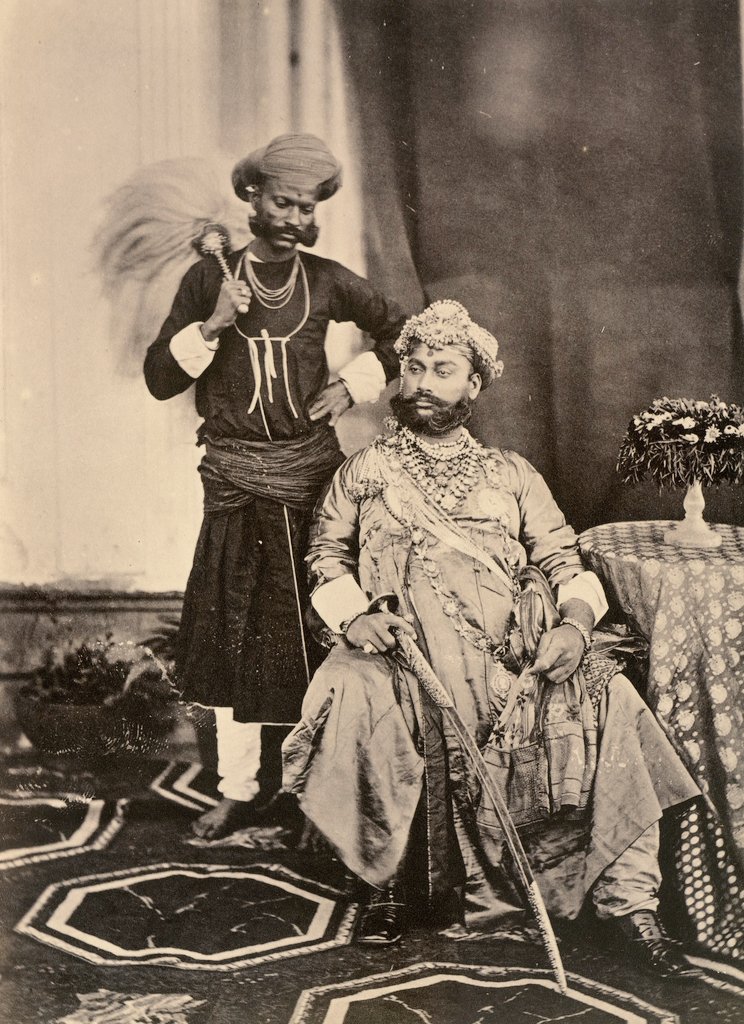
was 'lost in his own greatness', and was full of 'pride & self appreciation'. During the 1857 rebellion he pledged loyalty officially but was suspected of having secretly urged his troops to attack--apparently he had lost control over them.
Not only was he in touch with nationalists like Dadabhai Naoroji, but when making a donation of 25,000 rupees to Naoroji's East Indian Association in London, he praised it for its 'patriotic exertions' in protecting the 'true interests' of India and..
in highlighting the 'true state of' things to make British rule more 'just and beneficent'--a broadside against the Raj. When he imported a prominent Indian administrator to restructure his government, the British Resident at his court remarked..
that in reality the man was being brought in to 'fight' with Indore's white overlords. In the 1860s, not only did Holkar help the rulers of Dhar win back their state (confiscated for disloyalty during the 1857 rebellion) by tying up with lobbyists in London..
he got involved in Baroda and Mysore also to preserve the autonomy of these states. Considering that revenues grew during his reign, that he built a railway line & started cotton factories, & otherwise ran a strong govt (even if not entirely 'modern' or on the British pattern)..
it was difficult to attack him. It also gave him the confidence to test Raj officials. Once, a white man was lecturing the maharajah on a certain measure, saying 'I know something of these matters, Highness--I am a Jack-of-all-trades.'
Without missing a beat, Holkar muttered '..and master of none'. The matter went up to the viceroy but the maharajah got away--he claimed he was only showing off his knowledge of English proverbs! #FalseAllies
But do read for all the other fascinating characters and 'native statesmen' who pushed back against the Raj in their own ways.
amazon.in/FALSE-ALLIES-I…
amazon.in/FALSE-ALLIES-I…
This summarises the general argument of the book:
bbc.com/news/world-asi…
bbc.com/news/world-asi…
• • •
Missing some Tweet in this thread? You can try to
force a refresh



